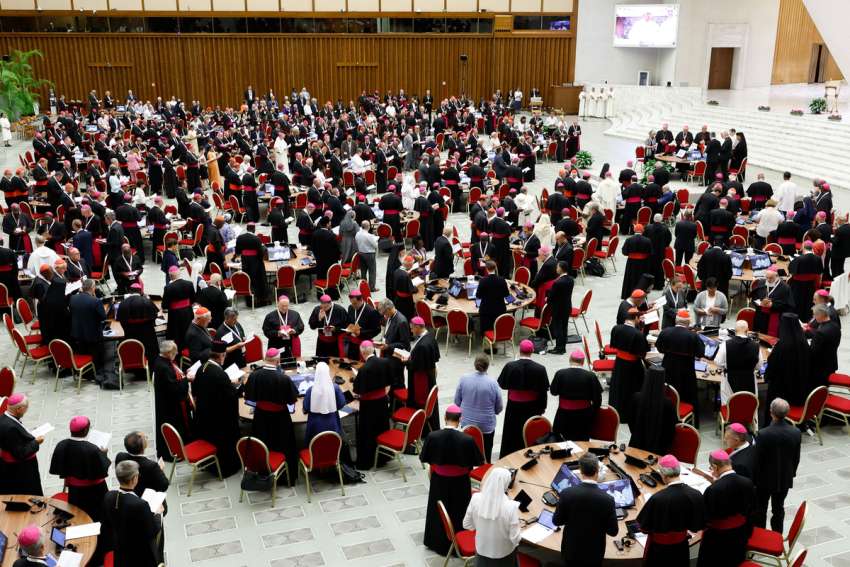VATICAN CITY -- The formation of seminarians, the Catholic Church as a welcoming home for all, migration and ecumenism arose as common themes of discussion among participants of the assembly of the Synod of Bishops Oct. 6, the Vatican said.
Divided into 35 small groups of 10-12 people ranging from cardinals to college students, the participants spent the third day of the synod assembly sharing what they had discussed in their small groups in the previous days and listening to individual remarks made to all synod members present.
The assembly spent Oct. 5 holding small-group conversations on forming a synodal church. Reports on the discussions, voted on in each working group to ensure they accurately reflected the work of the group, were shared with the entire assembly Oct. 6 followed by individual remarks made to the assembly, each expected to last about three minutes.
Paolo Ruffini, prefect of the Dicastery for Communication, told reporters that 18 small-group reports were presented and 22 individual interventions or speeches were made as of midday Oct. 6.
"Practically everyone has underscored the fraternal climate of welcoming that has been created in the synod," he said, adding that participants also discussed how to be in communion with those who did not participate in the synodal process due to persecution, indifference or apathy.
Ruffini said that the formation of seminarians was widely discussed, including ways to increase their participation in the community and engagement with people on the margins of society.
"There are few seminarians, sometimes their selection has created problems and there are seminaries that could have improved organization," he said, summarizing participants' comments.
Participants discussed the role of women in the church and the promotion of their active participation in the church's decision-making processes, he said, as well as ways of continuing to accompany migrants after they have migrated.
One small-group report, Ruffini noted, asked about ways the church can consider revising its structures through canon law and altering the Curia.
"How does the church become welcoming? Should something be changed to make a welcoming church? What should be changed?" he summarized.
Ruffini was asked about the synod rule of confidentiality and Cardinal Gerhard Müller, a synod member and former head of the Vatican doctrinal office, giving an interview and speaking about the synod discussions. "Each synod member makes their own discernment" about how to maintain the environment of sharing created in the synod assembly, Ruffini said. The rules given to synod participants require them to maintain confidentiality on what they, or others, say during the assembly, but "there is not a police force that punishes you."
He also shared that a participant's remarks underscoring how the church suffers in certain parts of the world, particularly in Ukraine, solicited applause from the entire synod assembly.


